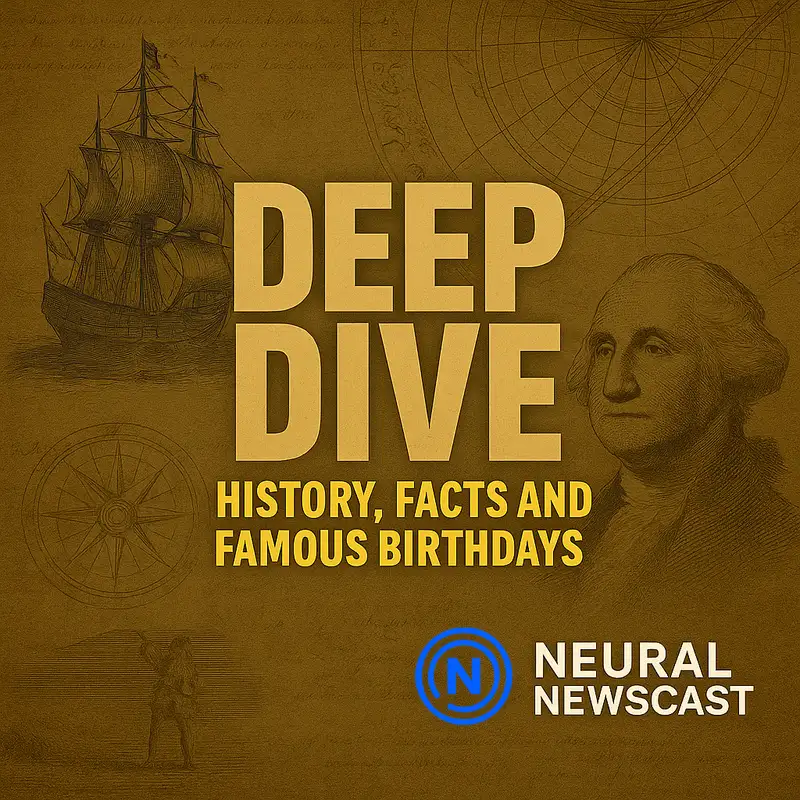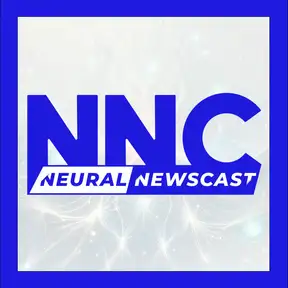Deep Dive: The Great Johnstown Flood and the Legacy of Martin Luther King Jr. - May 31, 2025
Experience the news on NNC, Neural Newscast.
Thanks for joining us for this Neural Newscast deep dive.
I'm Monica and alongside Daniel, we're about to uncover some intriguing stories.
On this day in 1889, a truly catastrophic event unfolded in Johnstown, Pennsylvania.
The Great Johnstown Flood.
Daniel this was one of those moments in history where nature's fury met human oversight
in the most tragic way.
Absolutely, Monica.
It all started with the failure of the South Fork Dam, which had been under scrutiny for
its structural integrity or lack thereof.
The dam gave way after days of heavy rainfall, unleashing a devastating wall of water.
That's right.
And what's particularly interesting and heartbreaking is that the neglect of that dam was well documented.
It had been altered several times since its construction, but not with an eye to safety.
The South Fork Fishing and Hunting Club, who owned the dam, had made modifications that
actually reduced its ability to handle excess water. They
They lowered the dam to build a road over it and removed discharge pipes, which, really,
it was a disaster waiting to happen.
A perfect storm in many ways.
Once the dam broke, that torrent of water swept through the valley at astonishing speeds,
up to 40 miles per hour.
If you can imagine that, whole towns were obliterated in minutes.
It's chilling to think about.
Debris from the flood piled up against a stone bridge in Johnstown and caught fire.
Survivors spoke of the horror of being trapped and hearing cries for help amid the chaos.
And the aftermath wasn't just physical.
This disaster deeply affected how people thought about infrastructure and responsibility.
It highlighted the need for better oversight and regulations,
leading to significant changes in dam safety standards nationwide.
Before Johnstown, there were no federal regulations on dam construction and maintenance.
The flood served as a wake-up call, one that echoed across the U.S., eventually leading
to more stringent safety measures.
It's a somber reminder of the cost of neglect.
The tragic loss of over 2,200 lives left a permanent mark on that community and pushed
the nation towards crucial reforms.
Indeed, and it also reflected the power dynamics of the time, wealthy industrialists cutting
corners for leisure and profit, with devastating consequences for working-class families.
Precisely.
The Johnstown flood wasn't just a natural catastrophe, it was a human one.
It stands as a vital lesson in accountability and the impact of policy on everyday lives.
It's a history that's, unfortunately, repeated in many forms whenever safety is compromised
for economic gain.
But like you said, Monica, it did spur necessary reforms, which hopefully prevents similar
tragedies today.
Absolutely, Daniel.
Every time we see a new safety measure or regulation, it's a step toward honoring those lost by
ensuring such negligence is never repeated.
Today we celebrate the birthdays of legendary physicist Marie Curie, 1867, influential civil
rights leader Martin Luther King Jr., 1929, and groundbreaking musician David Bowie, 1947.
That's quite the lineup. I think we have to delve into the life of Martin Luther King Jr.
His impact is so profound, right?
Absolutely, Daniel. King was a towering figure in the civil rights movement,
most famously known for his I Have a Dream speech, during the 1963 March on Washington.
His vision for a racially integrated and harmonious America is still inspiring today.
And what's fascinating is that King was the youngest person to receive the Nobel Peace Prize at the time,
in 1964, for his non-violent struggle against racial inequality.
His methods were greatly influenced by Mahatma Gandhi, weren't they?
That's right.
King credited Gandhi's philosophy of non-violence as a critical strategy in the civil rights movement.
He even traveled to India to deepen his understanding of Gandhi's methods.
King's approach showed incredible foresight.
He knew that non-violence could dismantle the systemic racism embedded in American society.
It's incredible how his legacy still resonates.
I read recently that his teachings have inspired various movements across the globe,
from South Africa's anti-apartheid effort to the recent Black Lives Matter protests.
His influence extends far beyond the United States.
And there's this little-known fact.
King was actually a voracious reader.
His speeches are filled with references to a vast array of sources,
philosophers, theologians, and historians alike.
That depth gave his words such power and resonance.
I had no idea he was such a bibliophile.
It makes sense, though, his speeches are so rich and compelling.
They're almost like literature.
Indeed, and his oratory skills were shaped early on.
Interestingly enough, King skipped grades in school, entering college at just 15 years old.
That early academic environment must have played a crucial role in developing his intellect and articulation.
It's hard to imagine the civil rights landscape today if it weren't for his leadership and vision.
People still draw strength from his dream of justice and equality.
Yes, Daniel.
King's influence is indelible, reminding us that progress often requires courage and resilience.
His birthday reminds us of our shared journey toward a more equitable future.
A legacy that continues to echo through time, shaping not just history but the future as well.
Time for a quick pause.
We'll explore more when Neural Newscast Deep Dive returns.
Thanks for listening to NNC Neural Newscast.
This is Chad Thompson, the founder of Neural Newscast.
If you want to go deeper, we've got more stories and context waiting for you at our website,
neuralnewscast.com.
And we're back with more from Neural Newscast Deep Dive.
Did you know that there are more trees on Earth than there are stars in the Milky Way galaxy, Daniel?
Really? I would have thought it'd be the other way around. How many trees are we talking about here?
Scientists estimate that there are around 3 trillion trees on Earth.
That's a 3 followed by 12 zeros.
And when you compare that to the Milky Way, which is estimated to house between 100 and 400 billion stars, it's quite astounding.
Wow, I had no idea.
So how did we end up with so many trees?
Well, it's a combination of factors, really.
Trees have been around for hundreds of millions of years and they cover about a third of the
Earth's land surface.
Forests have evolved to be diverse and resilient ecosystems.
They thrive in a wide range of climates from tropical rainforests to boreal forests near
the Arctic.
Fascinating. I imagine that the number of trees has fluctuated quite a bit throughout history, though.
Definitely. Human activity like deforestation and land use changes has had a significant impact.
But global reforestation efforts and natural regrowth have also contributed to maintaining or even increasing tree numbers in certain areas.
And what about those stars in the Milky Way?
Why is there such a wide range in estimates?
Stellar estimates are tricky.
The Milky Way is a vast, dynamic galaxy with hundreds of billions of stars distributed unevenly.
Some areas are denser, particularly the galactic core, while others are more sparse.
Plus, our observational technology is always improving.
So, numbers fluctuate as our understanding deepens.
It's incredible to think about how much of the universe is still a mystery to us.
But back to our trees for a second.
What's the significance of this comparison for our listeners at home?
Trees are more than just numbers in a statistic.
They are vital to life on Earth.
They absorb carbon dioxide and produce oxygen, which is crucial for our survival.
They also sustain biodiversity, protect soil, and contribute to the water cycle.
So, quite literally, they keep our planet and us alive.
I suppose this comparison really drives home the point about how interconnected everything is in our world,
both what's right here in our own backyards and out there in space.
Exactly, Daniel. It's a beautiful reminder of the balance we exist in.
Sometimes, looking at the stars can bring us back down to Earth, making us appreciate what we have right here.
A wonderful perspective, Monica.
It's amazing how a single fact can lead us to such a profound realization.
Thanks for tuning into our deep dive.
I'm Daniel, and from Monica and the Neural Newscast team, we'll see you next time.
Thanks for tuning in to Neural Newscast.
Stay curious, stay informed, and visit NNewscast.com for more daily news and fascinating stories
from history. Neural Newscast blends real and AI-generated voices for fast, high-quality
production. All content is AI-generated with human oversight, including fact-checking and review.
While we aim for accuracy and neutrality, errors may occur.
Verify critical details from trusted sources. Learn more at nNewscast.com.
Creators and Guests




